Summer Camp, Where “The Moon Belongs to Everyone”
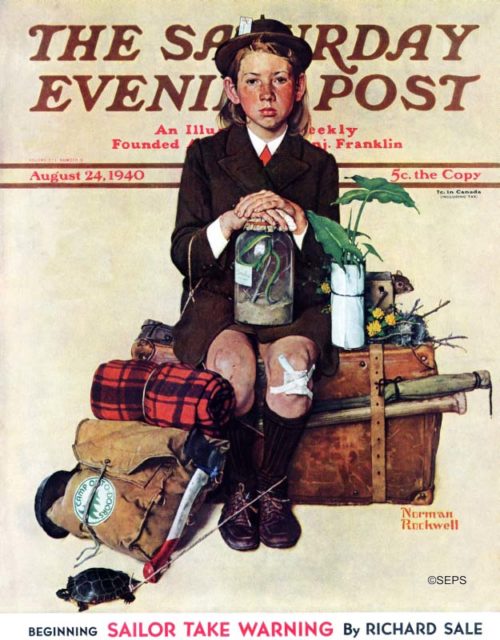
For decades, the Saturday Evening Post has recorded the most precious moments of summer camp. An August 24, 1940, cover features a young girl perched on a battered leather trunk. A bandage covers her knee. She holds a mason jar with a garden snake. The girl is surrounded by summer camp staples: a tent and a canvas haversack with a rolled plaid blanket, an axe, and a cast-iron skillet. A turtle tethered to her wrist with a string pulls away as a squirrel peers from behind a snatch of wildflowers and a wasp nest. There is a baseball bat strapped onto the trunk, making its way back home with the girl who is not looking forward to her return to society.
When Rockwell and other Post artists captured their subjects from the 1940s to the 1960s, camp was a wholesome privilege. Today, the American Camp Association, a voice for the industry, reports that summer camp has morphed into an $18 billion industry. Millions of kids are attending more than 8,000 sleepaway camps in the U.S. this summer. That figure will assuredly grow as parents long to return their children to the simple delights of our past.
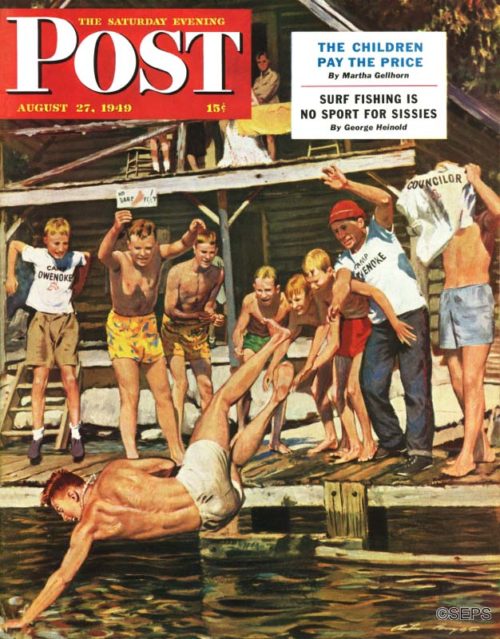
Once kids pass through the wooden totem pole gates at campgrounds, they return to a scene that campers have known for more than a century.
Eulogized in the 1927 song, “The Best Things in Life Are Free,” camp memories are priceless: ice-cold, fresh-water lakes, forested trails, s’mores by camp fires under star-swept skies, lightning bugs, fresh air, sunburned shoulders, and old-fashioned arts and crafts with sticks and yarn. Camp is about watermelon by the lake (depicted in an August 1, 1963, Saturday Evening Post cover), corny costumed talent shows, war games in face paint, and lop-sided mugs spun on a potter’s wheel. Though summer camp breeds friendship, the majority of the parents I know consciously send their children to camp to unplug from the technology and cell phones that wires them into society for the rest of the year.
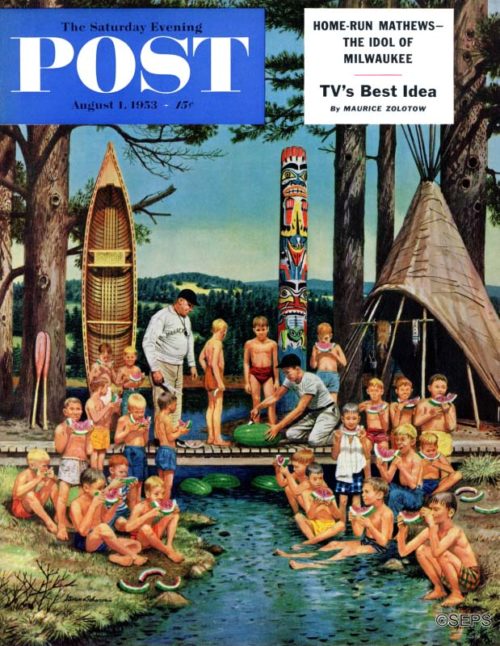
My mother grew up on a cotton farm in North Carolina. Now in her 80s, she recalls that the highlight of her year was a week spent at 4-H Club Camp, sleeping in a sweltering screened-in cabin, deep in the piney woods in the middle of the state during a July heatwave. “It was hot as the devil but I don’t remember the heat,” she says. My father was a handful who grew up in the Northeast. He spent eight weeks at camp in Maine and fondly remembered swimming in the freezing lake.
As a shy kid I made it through one summer of camp on the North Carolina coast and wish I could return to Camp Seafarer as an adult. My husband treasures the memories of his treks through the mountains of New Mexico as an Eagle Scout at Philmont Scout Ranch.
When we dropped our teenage daughter off at camp a few weeks ago in the Texas Hill Country, it was about 100 degrees. I literally peeled the cellphone from her fingers before she slipped off toward the lake with friends.
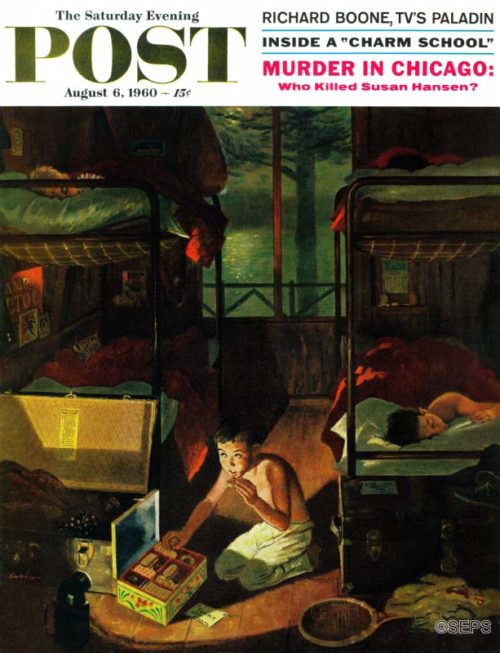
Watching other parents confiscate technology , it occurred to me that if Rockwell was perched under an umbrella, smoking a pipe with a sketchpad in his lap today, the contentious cell phone hand off may have been the scene for the cover.
Today, I received a genuine hand-written letter from my daughter raving about lifeguard training and new friends. In the post script, she begged us to mail her cell phone. Glancing back at those Saturday Evening Post summer camp covers, I am reminded that my daughter and the rest of the campers are surrounded by the best things in life, and better yet, simple things that are free.
Lyrics for “The Best Things in Life Are Free”
The moon belongs to everyone
The best things in life are free
The stars belong to everyone
They gleam there for you and meThe flowers in spring
The robins that sing
The sunbeams that shine
They’re yours, they’re mineAnd love can come to everyone
The best things in life are free
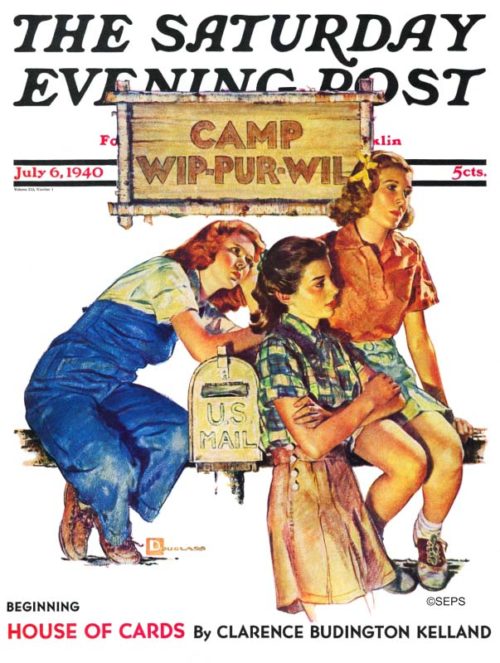
Featured image: First Day at Camp by George Hughes, July 3, 1954